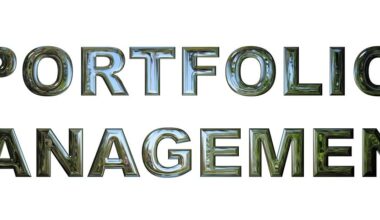Internal Controls and Their Role in Preventing Auditing Fraud
Understanding internal controls is essential in the context of auditing, specifically to mitigate fraud risks. Internal controls encompass policies, procedures, and practices that organizations put in place to ensure the integrity of financial reporting and compliance with laws. Auditor responsibilities include evaluating these controls to determine the effectiveness of risk management and fraud prevention. Implementing robust internal controls not only promotes operational efficiency but also helps in safeguarding assets and ensuring the accuracy of financial data. Sound internal controls can significantly reduce the likelihood of fraudulent activities occurring within an organization. They achieve this by establishing clear procedures that are consistently followed by employees. Ultimately, effective internal controls serve as a first line of defense against fraud, as they deter opportunities for employees to commit unethical acts. Additionally, regular monitoring and reviews of these controls ensure they remain effective in a changing environment. Organizations often use a combination of preventive, detective, and corrective controls to strengthen their fraud prevention strategy. Together, these elements contribute to an organizational culture that prioritizes ethical behavior and accountability across all levels, fostering trust among stakeholders and enhancing overall business integrity.
Organizations must recognize the critical elements of internal controls required to combat fraud effectively. Fundamental internal control components include the environment, risk assessment, control activities, information systems, and monitoring. Each of these plays a pivotal role in establishing an overall framework for reducing fraud risk. The control environment sets the foundational principles and values that guide employee behavior. Next, a thorough risk assessment helps to identify areas vulnerable to fraud, such as poorly monitored processes or inadequate segregation of duties. Control activities involve specific procedures put in place to prevent, detect, and correct issues in a timely manner. Equally important is the information system component that captures relevant data and ensures secure reporting. Lastly, continuous monitoring of these controls is vital to adapt quickly to new vulnerabilities. By understanding and implementing these essential elements, organizations can create a comprehensive internal control framework that enhances their capacity to curb fraudulent activities. It’s important that management sets the tone at the top, promoting ethical conduct and accountability. Through proactive communication and training, employees can contribute to an improved overall culture, resulting in a significant decrease in potential auditing fraud occurrences.
The Importance of Segregation of Duties
One of the most critical aspects of an effective internal control system is segregation of duties (SoD). This practice involves dividing responsibilities among different individuals to ensure that no single employee has control over all aspects of any financial transaction. By segregating duties, organizations minimize the potential for fraud, as collusion between employees becomes necessary for fraudulent activities to occur. Common SoD roles include separating the tasks of authorization, record-keeping, and custody of assets. For example, when one employee authorizes a payment while another records the transaction, the possibility of unauthorized alterations is reduced significantly. Implementing SoD not only helps to prevent fraud but also enhances data accuracy. Auditors often evaluate an organization’s SoD when assessing the strength of internal controls, as weak or nonexistent segregation can increase the risk of material misstatements. Furthermore, organizations should continuously review and update these duties based on new hires, job changes, or process alterations to ensure they remain effective. By maintaining a strong system of internal controls with well-defined responsibilities, organizations can aid in the prevention of auditing fraud while reinforcing overall governance and compliance efforts.
Another essential control measure is the implementation of thorough documentation and record-keeping protocols. Accurate, complete records facilitate transparency in financial reporting and are key to reducing the risk of fraud. Accessible documentation provides a trail that can be examined to verify transactions and minimize discrepancies. Organizations should develop a standardized documentation process that includes data storage guidelines and retention policies for records. Additionally, audits rely heavily on the availability of such records. They assess the reliability of financial data presented to stakeholders. Adequate documentation can also be an effective deterrent against fraudulent activities, as the knowledge that all transactions are tracked encourages accountability. Regularly reviewing documentation practices is crucial, ensuring that they align with both regulatory requirements and internal control objectives. Moreover, retaining supporting documentation can aid auditors in their assessments during departmental reviews and external audits. In an increasingly digital world, organizations should also consider implementing secure electronic record-keeping systems. These provide increased security and accessibility, thereby reinforcing the effectiveness and reliability of internal controls in preventing auditing fraud.
Continuous Training and Ethical Culture
Embedding a strong ethical culture within an organization complements the effectiveness of internal controls in preventing fraud. Employees should receive continuous training on policies, ethical standards, and fraud awareness to foster an environment of integrity and accountability. Such training programs should be tailored to different roles within the organization, ensuring that employees understand their responsibilities in safeguarding company assets. When organizations prioritize ethics, they reduce opportunities for fraudulent activity, as employees are more likely to adhere to established protocols. Furthermore, promoting open communication about ethics encourages employees to report suspicious behavior without fear of retribution, thereby aiding in fraud detection efforts. Leadership plays a pivotal role in cultivating a culture of integrity; visibly demonstrating commitment to ethics influences employees’ attitudes and behavior. Regular reminders of ethical standards can be an essential reinforcement mechanism. Effective performance evaluation systems should also include ethical behavior as a criterion. These strategies not only contribute to the integrity of the workplace but also protect the organization from potential financial and reputational harm arising from auditing fraud, ultimately preserving stakeholder trust.
Technological advancements play a vital role in enhancing internal controls and minimizing the risk of auditing fraud. Organizations are increasingly adopting innovative software solutions and data analytics tools that assist in monitoring transactions in real-time. These technologies can quickly flag unusual activities or patterns that may indicate fraudulent behavior. For instance, automated systems can provide alerts when anomalies in spending or data entry occur, enabling prompt investigation and resolution. Additionally, incorporating artificial intelligence into auditing processes provides deeper insights and identifies potential fraud risks more efficiently. Technologies like blockchain also offer improved transparency and traceability in financial transactions, reducing opportunities for manipulation. However, the adoption of technology must be combined with adequate training for employees who will operate and manage these systems. As internal controls become more reliant on technology, it is essential to ensure that personnel understand their function, as well as limitations. Implementing these technological measures with associated training can greatly strengthen an organization’s defenses against auditing fraud. In a rapidly evolving digital landscape, staying proactive in adopting new technologies and adapting to emerging threats is crucial for any organization aiming to maintain effective internal controls.
Final Thoughts on Internal Controls
Effectively implementing internal controls is paramount for organizations aiming to prevent auditing fraud. From risk assessment to employee training, each component contributes to building a robust framework that reduces vulnerabilities. Organizations need to regularly review and adapt their internal control systems to address evolving challenges and threats in financial management. Active involvement from leadership ensures that internal controls remain a priority, creating an environment of accountability and ethics. Failure to implement effective internal controls can lead to severe consequences, including financial loss, damage to reputation, and decreased trust from stakeholders. Therefore, organizations that prioritize a culture of integrity will pave the way for sustainable success. Establishing a strong internal control environment is not merely a compliance exercise; rather, it is a fundamental business strategy. With commitment and diligence, organizations can not only protect their assets but also improve overall operational efficiency. Regular audits, monitoring, and continuous improvement will be essential in identifying weaknesses and maintaining a robust internal control system. Ultimately, by investing in effective internal controls, organizations can foster an ethical workplace and ensure the accuracy of their financial reporting.
In conclusion, the significance of internal controls in preventing auditing fraud cannot be overstated. They serve as a fundamental safeguard for organizations by promoting transparency, accountability, and ethical conduct. Through segregation of duties, comprehensive documentation, continuous employee training, and technological innovations, businesses can build resilient control systems that deter fraudulent activities. Moreover, fostering an ethical culture within the organization supports the effectiveness of these controls, enabling employees to work together towards a common goal of preventing fraud. This creates a sense of belonging and trust, both of which contribute to an environment conducive to integrity. Leadership commitment is also paramount in reinforcing the principles of a strong internal control framework. Regular assessments and adjustments to these controls are essential to maintaining their effectiveness, as financial landscapes continue to change. Companies uninterested in investing time and resources into developing internal controls for fraud prevention risk facing dire consequences, including legal ramifications and loss of stakeholder confidence. Hence, organizations should acknowledge the vital role that internal controls play and prioritize their implementation as a crucial element of their governance framework. In doing so, they will not only safeguard assets but enhance their credibility and reputation in the marketplace.


